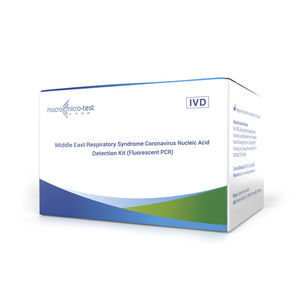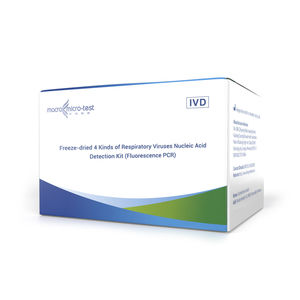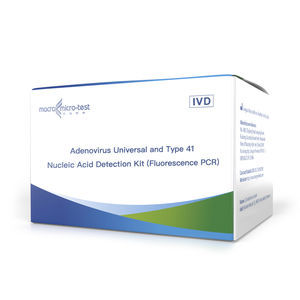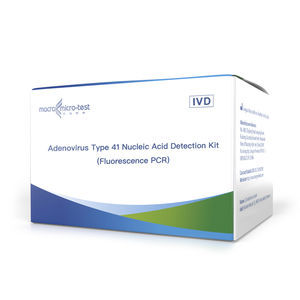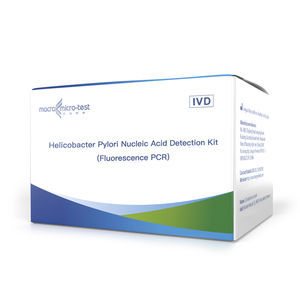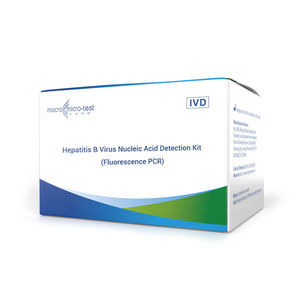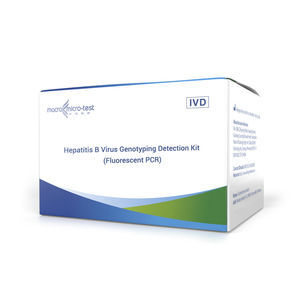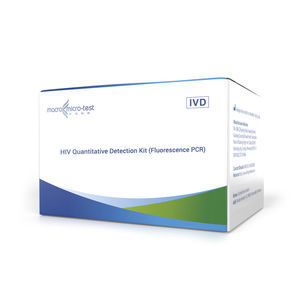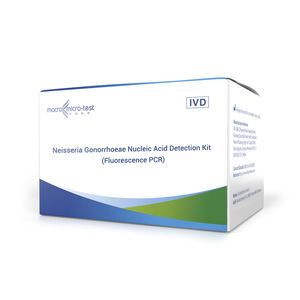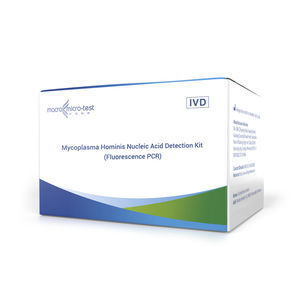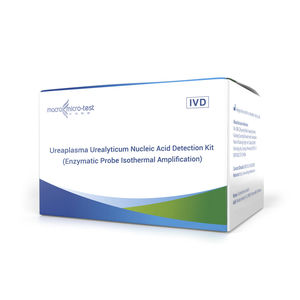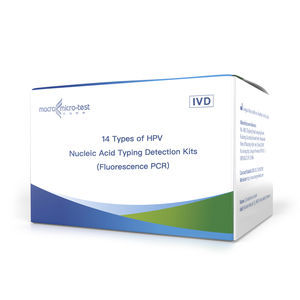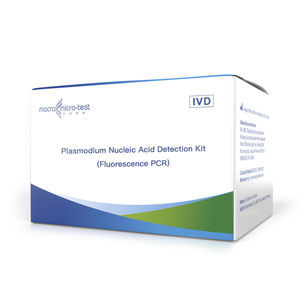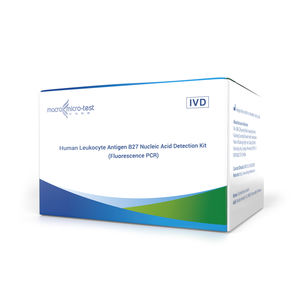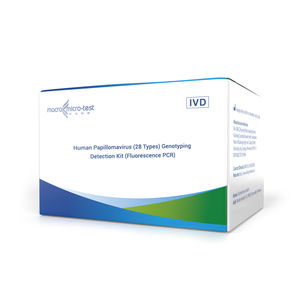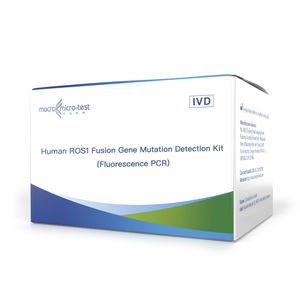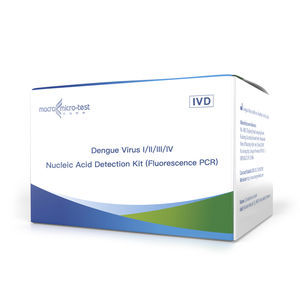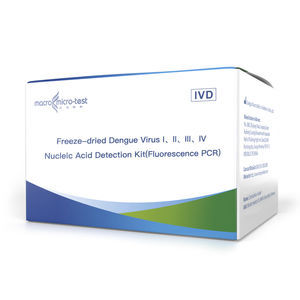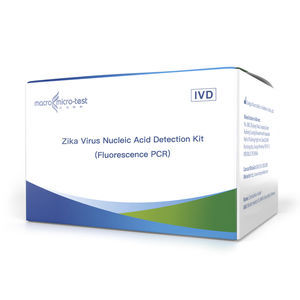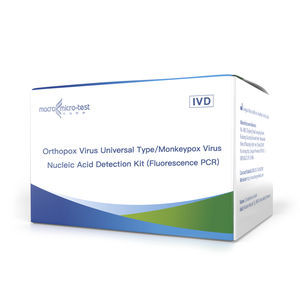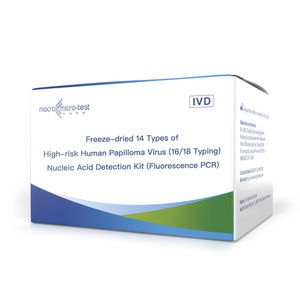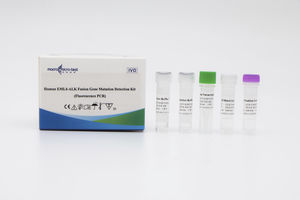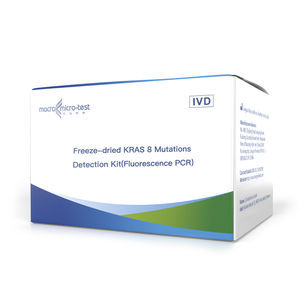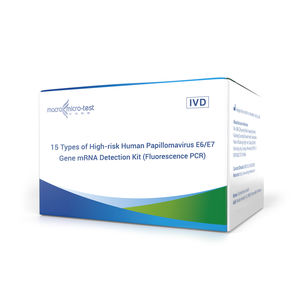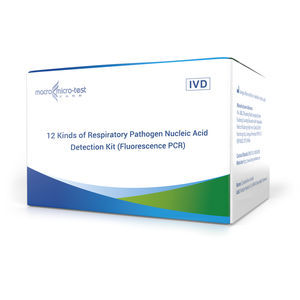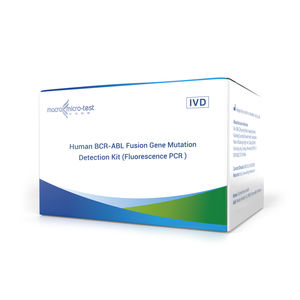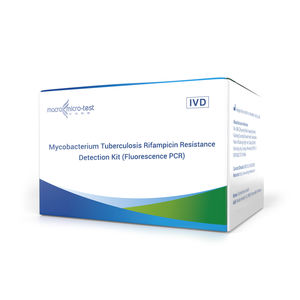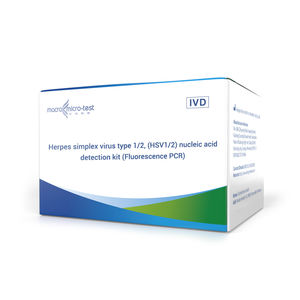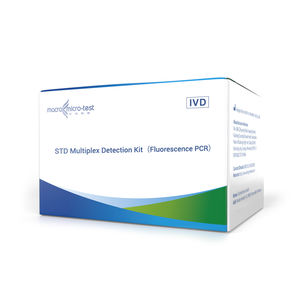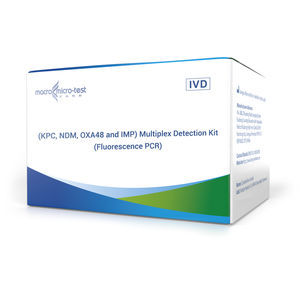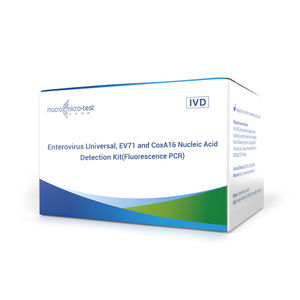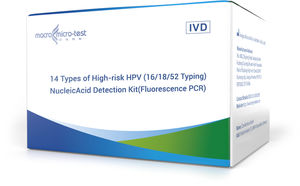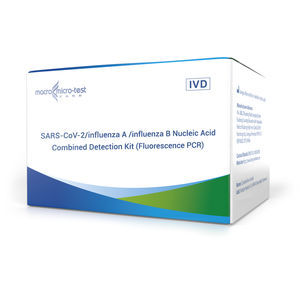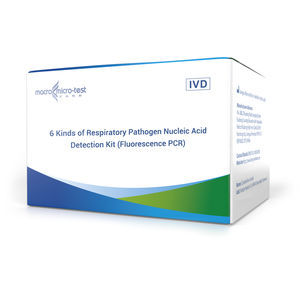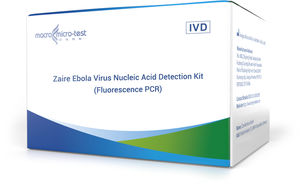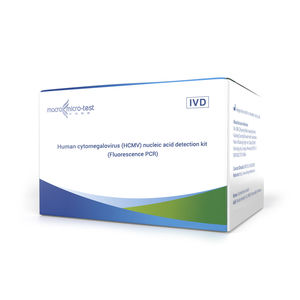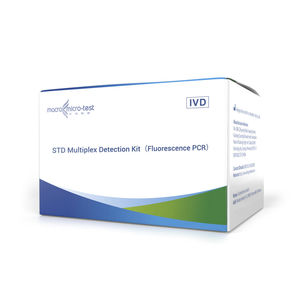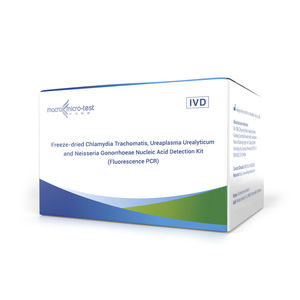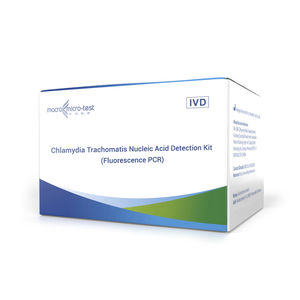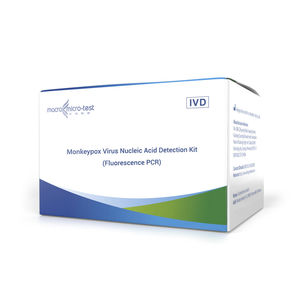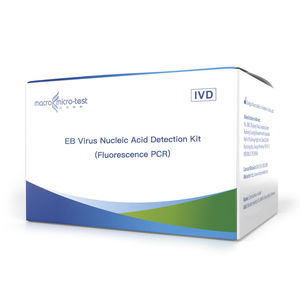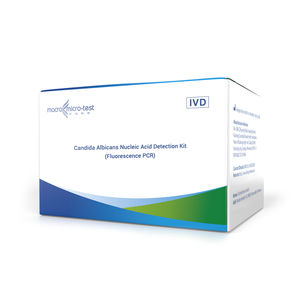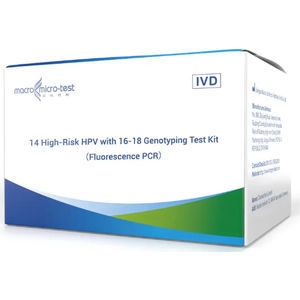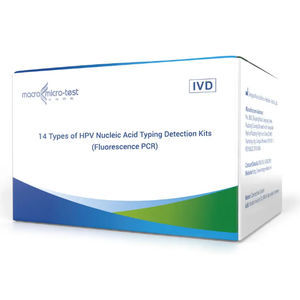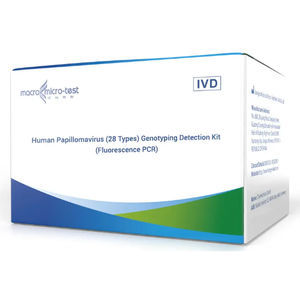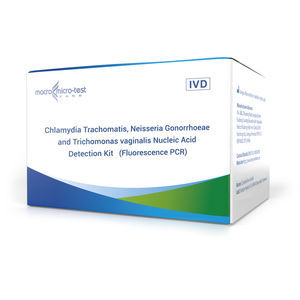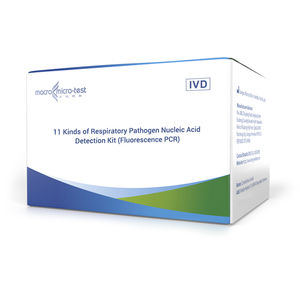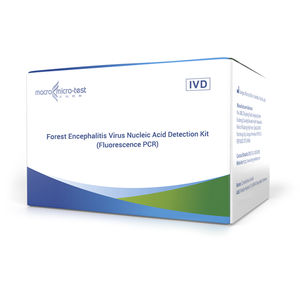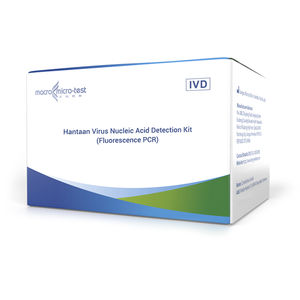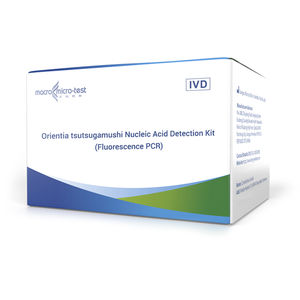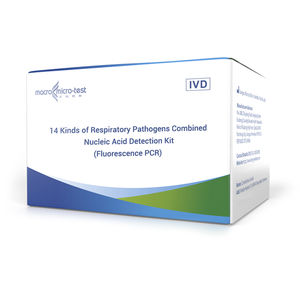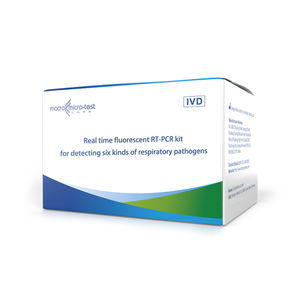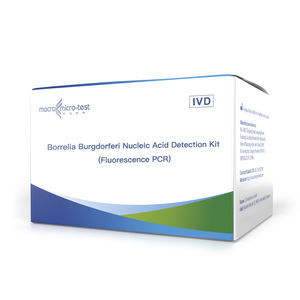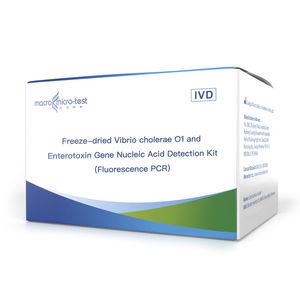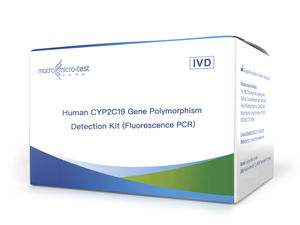
- Laboratory
- Laboratory medicine
- Infectious disease test kit
- Jiangsu Macro micro-test Medical Technology

- Company
- Products
- Catalogs
- News & Trends
- Exhibitions
Monkeypox test kit HWTS-OT071Afor infectious diseasesserumnasopharyngeal
Add to favorites
Compare this product
Characteristics
- Applications
- for infectious diseases
- Micro-organism
- monkeypox
- Sample type
- serum, nasopharyngeal, throat, for nucleic acids
- Analysis mode
- fluorescence, for RT-PCR
- Result display time
Min.: 60 min
Max.: 90 min
- Specificity
Min.: 97 %
Max.: 99 %
- Sensitivity
Min.: 97 %
Max.: 99 %
Description
This kit is used for in vitro qualitative detection of monkeypox virus nucleic acid in human rash fluid, nasopharyngeal swabs, throat swabs and serum samples.
Monkeypox (MP) is an acute zoonotic infectious disease caused by Monkeypox Virus (MPV). MPV is round-bricked or oval in shape, and is a double-stranded DNA virus with a length of about 197Kb[1]. The disease is mainly transmitted by animals, and humans could become infected by being bitten by infected animals or by direct contact with the blood, body fluids and rash of infected animals. The virus can also be transmitted between people, primarily through respiratory droplets during prolonged, direct face-to-face contact or through direct contact with a patient’s body fluids or contaminated objects[2-3]. The clinical symptoms of monkeypox infection in humans are similar to those of smallpox, generally after a 12-day incubation period, appearing fever, headache, muscle and back pain, enlarged lymph nodes, fatigue and discomfort. The rash appears after 1-3 days of the fever, usually first on the face, but also in other parts. The disease course generally lasts 2-4 weeks, and the mortality rate is 1%-10%. Lymphadenopathy is one of the main differences between this disease and smallpox[4].
Catalogs
No catalogs are available for this product.
See all of Jiangsu Macro micro-test Medical Technology‘s catalogsOther Jiangsu Macro micro-test Medical Technology products
FLUORESCENCE PCR
Related Searches
- Assay kit
- Solution reagent kit
- Blood assay kit
- Serum assay kit
- Immunoassay assay kit
- Plasma assay kit
- Infectious disease detection kit
- Blood rapid diagnostic test
- Diagnostic reagent kit
- Immunoassay rapid diagnostic test
- Molecular test kit
- Cassette rapid diagnostic test
- Virus rapid diagnostic test
- Respiratory infection test kit
- Whole blood detection kit
- Serum rapid diagnostic test
- Plasma rapid diagnostic test
- Optical assay kit
- Clinical assay kit
- Infectious disease rapid diagnostic test
*Prices are pre-tax. They exclude delivery charges and customs duties and do not include additional charges for installation or activation options. Prices are indicative only and may vary by country, with changes to the cost of raw materials and exchange rates.

